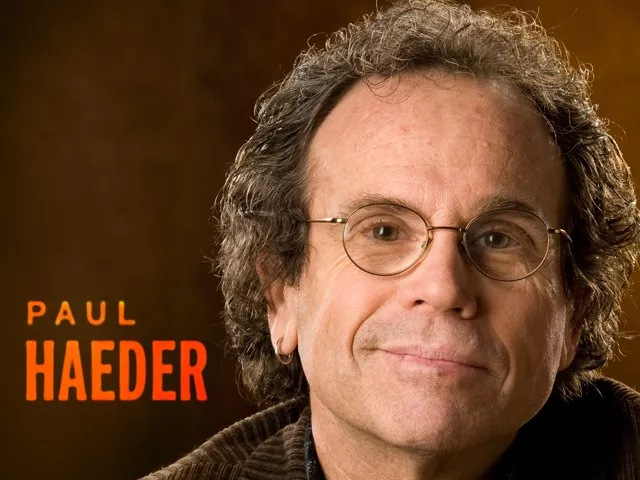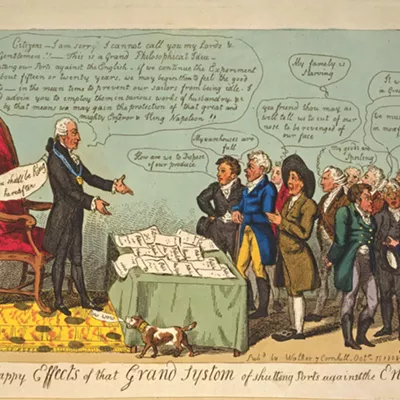The U-District could become the engine of revitalization and vibrancy in Spokane’s urban core. That was the message of the new president of Portland State University, Wim Weiwel — an expert on the role of universities in sustainable urban development — when he blew into town recently to impart his ideas to local politicians and business leaders.
Now, the connection between university life and incubating huge change for Spokane’s downtown district is a big leap for some. You know, GU, EWU, WSU, CCS, and SIRTI are “way down there,” next to the railroad tracks and east of Division.
But Weiwel — who hails from Amsterdam and cut his teeth in Boston and New York before heading up the “green machine” in Portland — has spent the last 18 months positioning PSU to be the world’s sustainability Mecca, akin to MIT’s role as world’s engineering center.
EWU’s urban planning school and the Downtown Spokane Partnership got him here to look over our downtown plan and consider the U-District’s future. He gabbed with politicians and others surveying the lay of the land. But what kind of psychological impact did he have on the players involved in downtown development?
PSU’s physical footprint, economic imprint and sheer growth rate since its inception in 1946 are impressive, with explosive building expansion, redevelopment galore and a projected student body rising from 28,000 to maybe 52,000 in next 25 years.
Weiwel sees PSU’s apartments, green boulevards, private-public partnerships and integrated urbanization — “a university not in but of the city” — as ideal.
For instance, a Living Building, the world’s largest, is being built to serve as the Oregon Sustainability Center, with PSU acting as real estate developer, expert advisor, business accelerator and community partner.
PSU students have to do a capstone project tied to public projects at the neighborhood level. It’s a big infl uence on Portland, with 1.4 million hours of PSU student time put into development in 2007.
Weiwel’s talk with Mayor Verner was a half hour — not a roll-up-the-sleeves encounter. Weiwel made a presentation to the DSP and others in the business community — but really, what can come of outsiders, albeit innovators, breezing into town to talk to an entrenched community?
The U-District needs genuine density: an urban village … with mixed-income housing that’s sustainable.
Spokane needs connectivity — pedi-cabs and rickshaws, people-powered traffic lanes, dedicated alternative transportation. Buses should run every 10 minutes from downtown to the U-District. In tandem, get the Jenson Byrd building retrofitted and set up as a university incubator with private partnerships, dorms, knowledge- and tech-based business, and private housing.
The U-District needs genuine density: an urban village on those 55 acres with mixed-income housing that’s sustainable and low-impact. Neighborhood gardens, some on roofs. Private foundations researching climate change, agriculture, urban and rural sociology.
We could move some key government agencies — maybe even a K-12 campus — into what would be a mixed business-educational-research park. We could apply for “green” federal stimulus bucks to create an urban multi-campus town-scape with restaurants, technology shops and general retail.
A whole lot of talking goes on in Spokane, for years, and then the strategic plans collect dust in dark corners.
All this is not to say that the concept of a centralized Sustainability Center at PSU doesn’t also have top-heavy problems: Low-income neighborhoods were removed, and gentrification ensued.
But we shouldn’t kid ourselves: We’re not doing anything sustainable when we dump more pollution into the atmosphere, delay de-carbonizing our society, plunder resources and stall conservation.
Every major state university should have sustainability centers based on each area’s biological, hydrologic, cultural, economic and population needs. Sustainability is evolving daily: We’re seeing that manufacturing solar panels and computer screens generates a by-product gas (NF3) 17,000 times more potent than carbon dioxide.
In an era when Republicans guffaw whenever global warming is mentioned — and when President Obama fails to remind Republicans that some of their favored legislation funds research into the very real dangers of the same global warming that they deride — maybe it’s time for universities to become our social justice and peace centers. Maybe universities will lead the way on sustainability — and maybe lawmakers will start listening.
Paul K. Haeder is an instructor at SFCC.
















